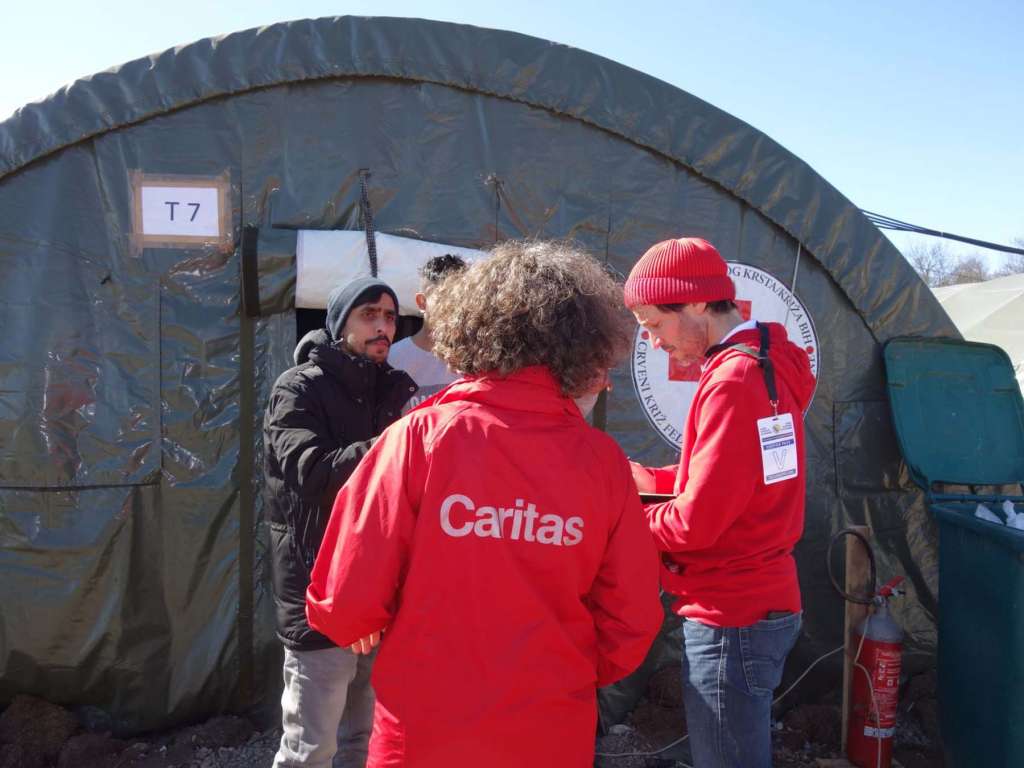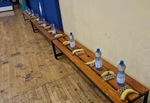Domestic NGOs main providers of humanitarian aid for migrants in BiH

Bosnia and Herzegovina is still providing a shelter to a significant number of migrants, with domestic non-governmental organisations as the main providers of humanitarian aid for the people on the move.
Oglas
According to Alen Kajtaz, the secretary of the Red Cross of the City of Mostar, there are not many migrants on the territory of the Herzegovina-Neretva Canton but this is not likely to stay the same.
“There are currently seven persons at the Salakovac refugee centre undergoing the readmission procedure, but we can always respond to smaller numbers without international assistance,” he told Fena news agency.
He recalled of the 2018 events when the refugee centre accepted 189 migrants, noting that in such cases the centre expects the assistance of the international community.
Kajtaz positively assessed he system of the International Federation of Red Cross and Red Crescent Societies, which stands ready to help on every occasion as well as the Disaster Response Emergency Fund (DREF) and trained teams that are on the site within 24 hours from the call for assistance.
Caritas BiH is also actively involved in assisting primarily migration camps in the Una-Sana Canton (Borici and Lipa) and the Sarajevo Canton (Blazuj and Usivak).
According to this organisation, there are around 1,500 migrants and asylum seekers in those camps, while a part of them is roaming around outside the camps.
Official figures of the registered arrivals show that some 16,000 migrants arrived in Bosnia and Herzegovina this year, mostly from Afghanistan and Burundi, as well as Pakistan, Iran and Cuba. Those often include young people, minors and families with children.
“Migrants are provided with laundry services, food delivery and hygiene items, and the organisation of social and other services,” said Miroslav Valenta, project manager at the Caritas BiH, adding that the entire care system for migrants and people on the move still does not function properly and that there are many shortcomings.
However, Caritas strives, in line with its capabilities and in cooperation with a large number of partners, to provide help to all people in need - he added
Institutions at all levels of government play a key role in supporting the work of humanitarian organisations by providing various types of assistance, resources and cooperation.
"Primarily, these are financial resources and logistical support for programmes and projects, since humanitarian organisations can act more quickly, especially in emergency situations, but also for the implementation of current programs aimed at solving certain social problems, health care, education and such", said Valenta.
He also emphasised the need to simplify the process of obtaining the necessary permits, licensing services, as well as ensuring that these organisations can operate without unnecessary bureaucratic obstacles and regulating the work of volunteers, which is still not fully resolved.
Kakvo je tvoje mišljenje o ovome?
Učestvuj u diskusiji ili pročitaj komentare
Oglas
Kakvo je tvoje mišljenje o ovome?
Učestvuj u diskusiji ili pročitaj komentare
Oglas
NAJČITANIJE
Oglas
Oglas
Najnovije
Oglas
Oglas





 Srbija
Srbija
 Hrvatska
Hrvatska
 Slovenija
Slovenija



























































